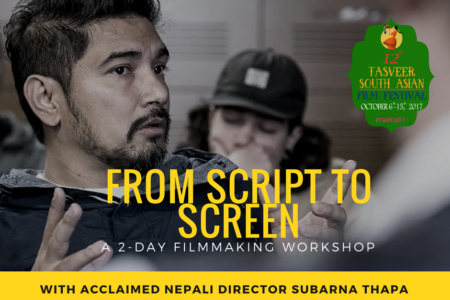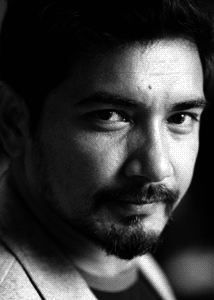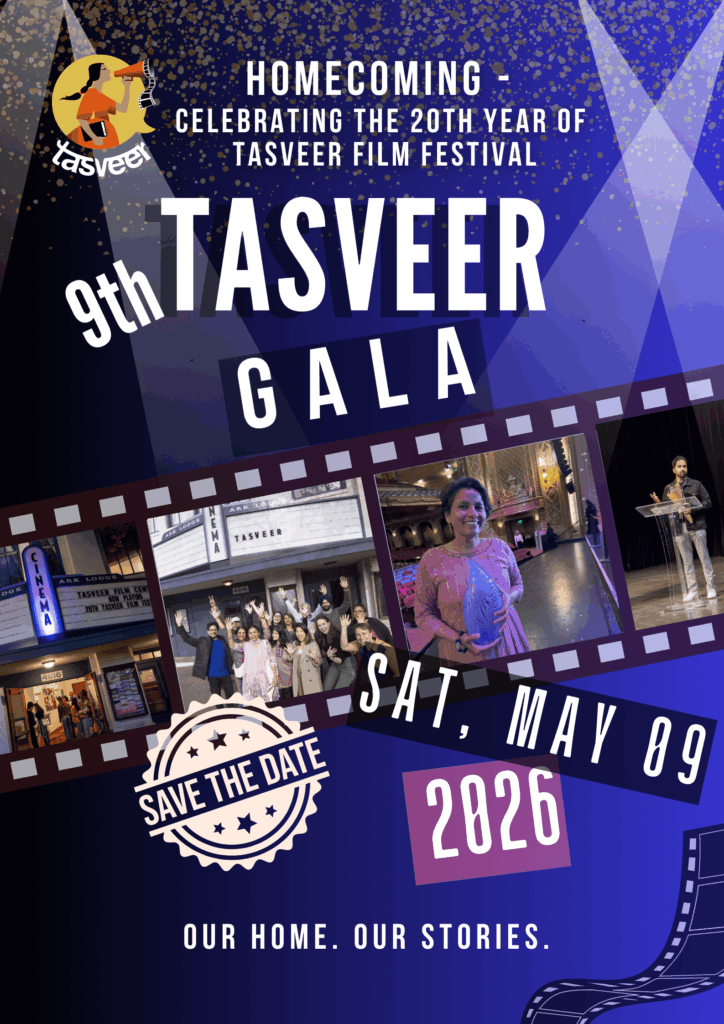Northwest Film Forum, Seattle – October 9, 10 & 12
This 3-day course is intended for aspiring filmmakers, and will take participants through the cinematic creative process, from the initial screenplay to the final product, allowing them to experience firsthand the various aspects of filmmaking.
Day 1: From an Idea to a Story
Day 2: From a Story to a Script
Day 3: From a Script to the Screen

Course Description
Day 1
History and narration: Real, fictional, historical event, a novel, theatre, poetry
Subject: Myth, the archetypes, Mahabharata, Ramayana in their modern forms.
Genre and structure, the basics:
- The fundamental mechanism
- Basic principle: characters, objectives, obstacles.
- The dialogue in cinema: dramaturgy, type of dialogues, and dialogue in relation to the action
- The structural mechanism of script
- Dramatic disposal
Day 2
Writing own screenplay
Finding an Idea and developing that in STORY
Action in its context, the fact, the circumstances, the situations.
The Characters, the relational stakes, the contradictions, crisis
Symbolisation and hyper dramatisation
The Dialogue in Cinema
Its function in Dramatic Art
The different types of dialogue
Its relation with action
Day 3
The Structurals Mechanisms of the Screenplay
Syntactic Mechanism: Ellipses, Flash back, Parallel Montage
Mise-En-Scène : Staging an action
(Setting, Lighting, Actors)
# Description
° Screenwriting : Writing original screenplays for cinema and television, adapting a novel, and a play.
° Storyboard Technique : How to break down a story, shot by shot, in preparation for shooting.
° Casting and directing actors: Selection of actors according to characters and directing techniques.
° Directing the crew/actors during different stages of film production:
- Screened examples analyzed
- Rolling Q & A
- Translating the literary script into a visual story
- The use of music and specifically, where music would be used in these Shorts
- The value of sound
- Shooting
- Editing
- Mixing
Outcomes & Measuring Outcomes
- Inspiring writers to see film as an option for them to find expression and employ
- Understanding of what is expected of a writer when reaching a shooting script
- Experience with what it means to collaborate in the film industry.
- Practical experience, where they will learn on the job.
- Experience the very different components of filmmaking
- Understanding the job of the director in bringing these disciplines together
- Understanding the role of the director when working with writers
- Understanding the needs of actors to create a better film through performance
- Increased confidence in their own ability to direct
- Increased confidence in individuals on their own ability to get a project off the ground.
- Experience with film festivals, national and international

Director’s Bio
Subarna Thapa is a graduate of the “Cours Florent” in Paris; he performed in France for “La Comédie Française” and in Nepal. He also played for the Japanese Foundation in Tokyo and for the Asia Society in New York. His first short film, Malami (Funerals, 2008) was broadcast in several international short film festivals where it was rewarded. His first film Soongava (The Orchid Dance) was broadcast on France 3. It is the first film in Nepalese history to broach the subject of homosexuality. The film represented Nepal in the 2014 Oscars nominations. Subarna chose to shoot his second short film Fils (Son) in France but some scenes were shot in Nepal. The film received financial support from the Languedoc-Roussillon and Subarna’s son, Anudaan, acts in it.

